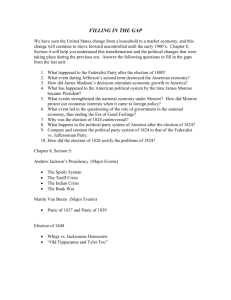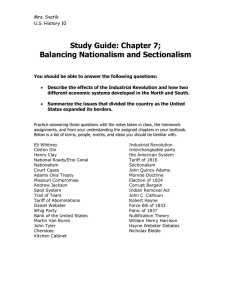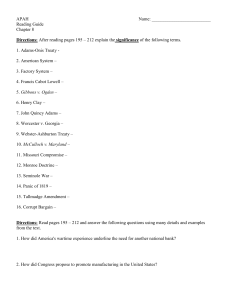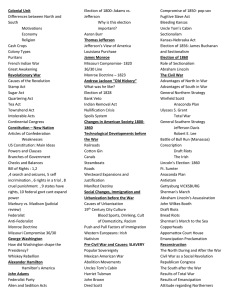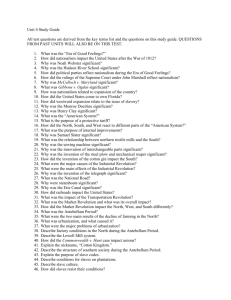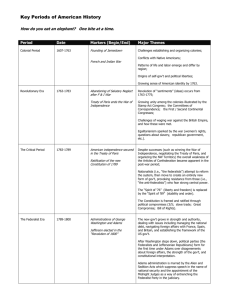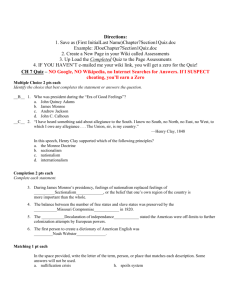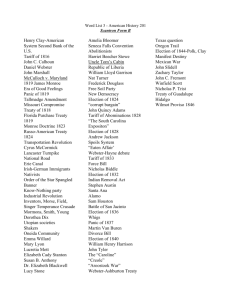Chapter 10 * Nationalism and Sectionalism
advertisement
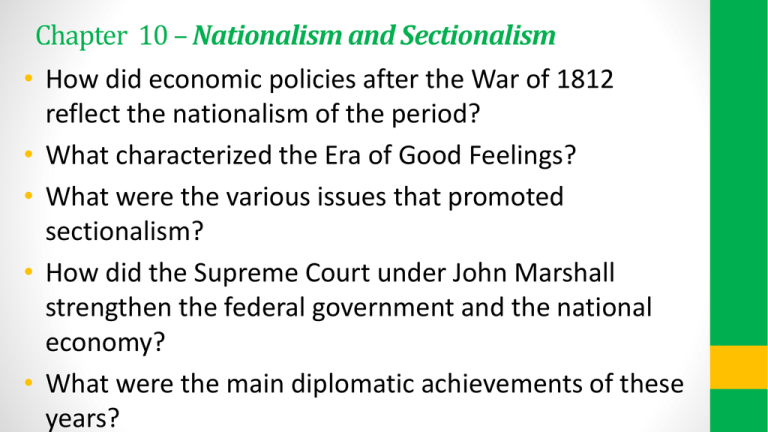
Chapter 10 – Nationalism and Sectionalism • How did economic policies after the War of 1812 reflect the nationalism of the period? • What characterized the Era of Good Feelings? • What were the various issues that promoted sectionalism? • How did the Supreme Court under John Marshall strengthen the federal government and the national economy? • What were the main diplomatic achievements of these years? What Characterized the Era of Good Feelings? • James Monroe (1817-1825) • Democratic-Republican • Last President from the “revolutionary generation” • Last president to dress in the old style. • The United States was at peace and in a state of well being • Term coined during a goodwill tour of New England • The Republican party was completely dominant • Monroe accepted the Bank of the US and protective tariff and allowed the National Road to be extended • HOWEVER, he vetoed a bill that would have given congress the authority to collect tolls to pay for repair and maintenance What were the various issues that promoted SECTIONALISM? • Nationalism turns to Sectionalism • 1819 • More land means a debate over the extension of slavery • Financial panic of 1819 • Controversy over Missouri Statehood • short-term solution • Cotton Culture and expansion of Slavery • An Urban Middle Class emerges in the North United States Land Acquisitions between 1800 and 1860 The End of an Era • In the election of 1824, with no political party to contend against, the Democrat-Republicans turned on themselves and ran four candidates for the presidency. • The election resulted in no one winning an electoral majority, and the election was thrown into the House of Representatives. • Once the election was thrown into the House, each state got one vote, regardless of how their citizens voted. In the end, John Quincy Adams won the presidency, though he had lost the popular vote and had come in second to Jackson in the electoral vote. The End of an Era • As president, Adams supported bold internal improvements. • Almost from the moment the 1824 election ended in the decision by the House of Representatives, the 1828 election began. • Jackson and his followers launched attacks on Adams’s character, to which the president’s supporters replied with equally blistering assaults.


